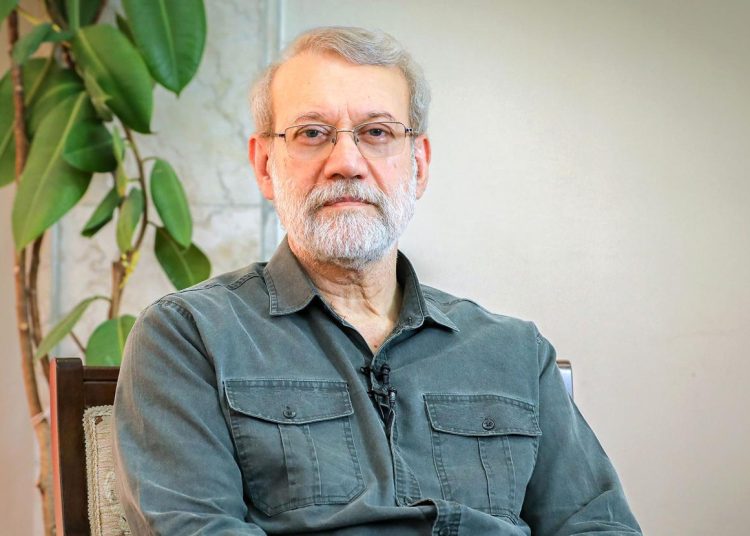Iran’s top security official, Ali Larijani, has accused European powers of repeatedly shifting the goalposts in negotiations over the nuclear matter, asserting that Tehran has accepted multiple proposals to de-escalate tensions, only to be met with new demands and a lack of European independence from Washington.
In a wide-ranging interview, the Secretary of Iran’s Supreme National Security Council detailed a series of diplomatic overtures that he says demonstrates Iran’s commitment to dialogue, even as Europe moves to activate the “snapback” mechanism to reimpose UN sanctions.
“We have gone down every path to leave them with no excuses,” Larijani stated, addressing public concern over the potential return of sanctions. He argued that the West, not Iran, has violated the JCPOA. “The Americans first exited the deal… Then, for a year, the Europeans made promises but did nothing. If anyone is to be held accountable, it should be them.”
According to Larijani, the timeline of recent negotiations reveals a pattern of European backtracking:
- The IAEA Agreement: Larijani said European states first proposed that if Iran reached a new cooperation framework with the International Atomic Energy Agency (IAEA) -following an unprecedented military attack on an Iranian nuclear facility – they would withdraw their snapback request. Iran negotiated and reached a “generally acceptable” agreement with the IAEA. “Those who said they would withdraw the snapback if this agreement was made did not keep their word. They said, ‘No, we want something else,’” Larijani explained.
- The Russian Proposal: Next, Russia proposed a six-month delay on the snapback mechanism to create space for negotiations. “We accepted this as well,” Larijani confirmed, emphasizing Iran’s principle of never abandoning good-faith, realistic negotiations. The Europeans, however, did not accept the Russian plan.
- The European Proposal: The European powers then presented their own proposal, which included conditions Larijani described as “not very logical.” One key condition was direct negotiation with the United States. “It’s interesting that the European Union proposes a plan whose condition is to negotiate with America; this shows you their political weight,” he commented. Despite this, Iran agreed to talks in the original P5+1 format (including the US), again aiming to remove any pretext for confrontation. “They themselves proposed it, but then didn’t accept it,” he said.
Larijani asserted that these diplomatic maneuvers were a smokescreen for the West’s ultimate goal: forcing Iran to negotiate on its defensive missile program. He recounted that the US, with European backing, is now demanding that Iran’s missile capabilities be on the table.
“They say you must not have enrichment… They say you must not have long-range missiles, sometimes specifying a range under 300km or 500km,” Larijani said. “They want to take away our nation’s most important means of defense. Will any rational person in Iran accept this? Iran will not only stand firm but will deliver a slap in their face.”
Addressing Economic and Military Concerns
Addressing domestic anxieties, Larijani sought to downplay the immediate impact of reimposed UN sanctions. He argued that approximately 95% of the sanctions that would be activated are already being enforced extra-judicially by the United States.
“The US is already sanctioning any company, bank, or port that works with Iran. In practice, it doesn’t make a huge difference,” he said. The primary change, he noted, would be the “legal veneer” that UN backing would give the sanctions, which some countries might use as a pretext to halt cooperation. However, he pointed to a changing global landscape where countries like Russia and China, also facing Western pressure, are building alternative economic systems.
He dismissed the idea that triggering the snapback mechanism would provide legal justification for military action. “The resolutions absolutely do not contain any provision for military operations,” he stated firmly. “They are trying to create fear.”
In his concluding remarks that were made couple of days ago, Larijani assured the Iranian people that while the country is prepared for the worst-case scenario, the door to diplomacy remains open. “New proposals are still being discussed. The Iranian nation should be confident that we are exploring all paths… but we must also be ready.”






